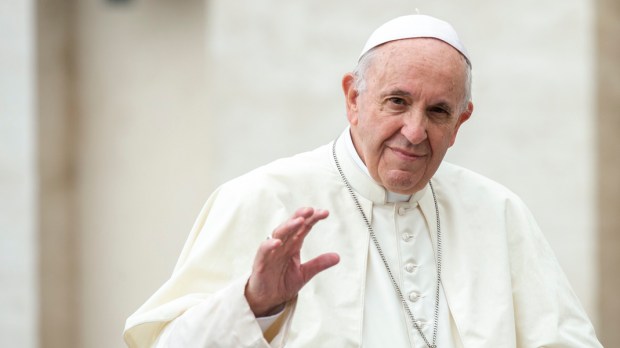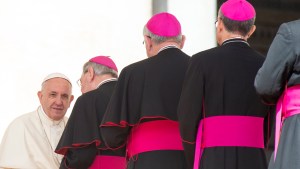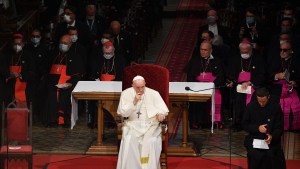After the Pope spoke this week with the Associated Press about laws criminalizing homosexuality, sometimes even with the death penalty, a Jesuit priest known for his outreach to homosexuals asked the Pope for clarification.
In his interview with The Associated Press, the Pope said there should be a distinction between sin and crime, and that while homosexual behavior is recognized as a sin, it shouldn’t be a crime in the legal sense. (The full Spanish-language transcription of the interview is here.)
Fr. James Martin thus wrote the Pope and the Pope sent a brief handwritten response, shared at Outreach.
When I said it is a sin, I was simply referring to Catholic moral teaching, which says that every sexual act outside of marriage is a sin. Of course, one must also consider the circumstances, which may decrease or eliminate fault. As you can see, I was repeating something in general. I should have said “It is a sin, as is any sexual act outside of marriage.” This is to speak of “the matter” of sin, but we know well that Catholic morality not only takes into consideration the matter, but also evaluates freedom and intention; and this, for every kind of sin.
Here the Pope is referencing the classic three conditions for sin, particularly in the case of mortal sin: matter (that is, what the act is), knowledge, and consent.
1857For a sin to be mortal, three conditions must together be met: “Mortal sin is sin whose object is grave matter and which is also committed with full knowledge and deliberate consent.”131
1858Grave matter is specified by the Ten Commandments, corresponding to the answer of Jesus to the rich young man: “Do not kill, Do not commit adultery, Do not steal, Do not bear false witness, Do not defraud, Honor your father and your mother.”132 The gravity of sins is more or less great: murder is graver than theft. One must also take into account who is wronged: violence against parents is in itself graver than violence against a stranger.
1859 Mortal sin requires full knowledge and complete consent. It presupposes knowledge of the sinful character of the act, of its opposition to God’s law. It also implies a consent sufficiently deliberate to be a personal choice. Feigned ignorance and hardness of heart133 do not diminish, but rather increase, the voluntary character of a sin.
Read the following numbers of the Catechism for further information.
Context of comments
The Pope said that his lack of specificity is to be expected in an interview:
In a televised interview, where we spoke with natural and conversational language, it is understandable that there would not be such precise definitions.
The AP asked about the criminalization of homosexuality just a week before the Pope heads to Africa. On that continent, more than two dozen countries classify homosexuality as a crime, with three considering it a crime punishable by death.
The Pope acknowledged that even some bishops push for legal punishment of homosexual acts, but said that this stance is a product of the culture.
Notes to Fr. Martin
The Pope has written Fr. Martin before. In May of 2022, he sent a note encouraging people with homosexual tendencies to read Acts of the Apostles, to have an image of the “living Church.”



